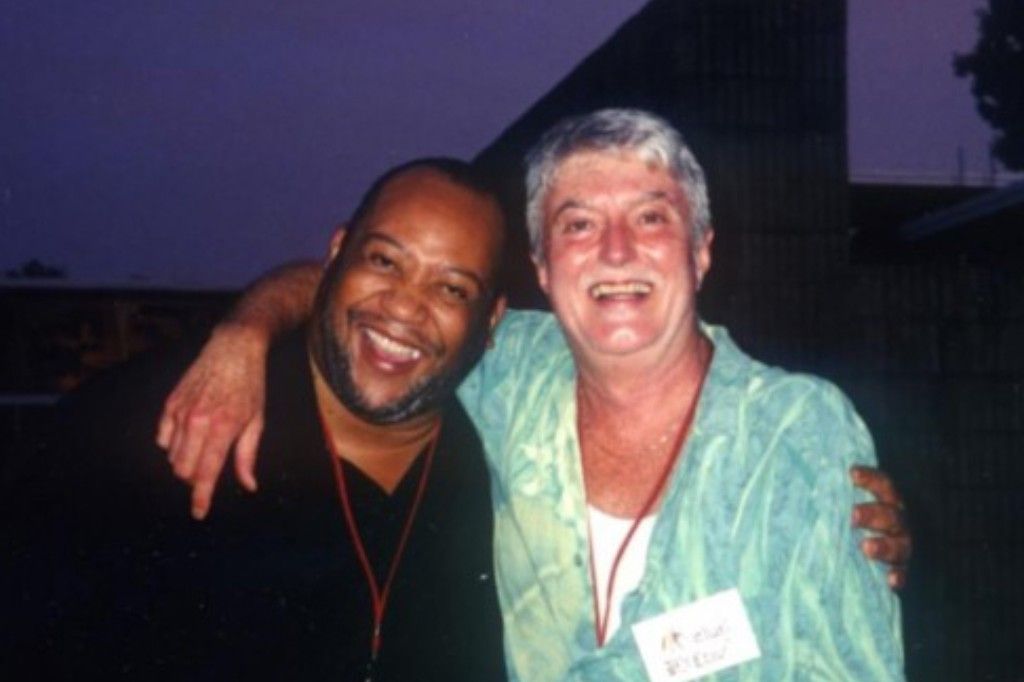Welcome to Harmonia Uncut, the podcast that takes you to early music performances you might have missed. I'm Wendy Gillespie, and we’re in Bloomington, Indiana, in the recently completed Auer Concert Hall, for the date is Feb 26, 2001. Bassoonist Michael McCraw, oboist Washington McClain, and violinist Stanley Ritchie, all Early Music Institute faculty members, teamed up with the very talented doctoral harpsichord student Corey Jamason for a concert of mostly baroque music with a gentle push forward, for in those days the boundaries between early music and historical performance were crumbling. You have to bear in mind that at the time the EMI still faced resistance from its “modern” conservatory colleagues as they felt their turf being invaded ever further all the time. And all of that, of course, was long before other events brought the entire canon of music by dead white European males under fire. Goodness, 2001 seems a very long time ago, doesn’t it?
We’re going to do things a bit differently in this episode of the podcast. On this occasion, the performers took the summons for an encore literally. The concert was, therefore, effectively a Telemann sandwich, with its first and last piece his Trio sonata in G minor for oboe, violin, and continuo. What a good opportunity to celebrate live performance and let you hear both versions, which are about a minute different in length and have more than a minute difference in affekt. Here’s the opening of the concert:
MUSIC
Stanley Ritchie, Washington McClain, Michael McCraw, and Corey Jamason played violin, oboe, bassoon, and harpsichord, respectively, on Georg Philipp Telemann’s Trio sonata in G minor for oboe, violin, and continuo.
Telemann’s godson Carl Philipp Emmanuel Bach was geographically and personally close to his godfather, but stylistically, well, not so much. Listen to how different G Minor can sound in the hands of CPE, as Wash and Corey play the Sonata in G Minor for Oboe and Harpsichord. The piece inhabits a space between baroque and classical styles in its own world, that of the empfindsamer Stil, which applies principles of rhetoric and drama to music. In the humble opinion of your host, Wash is in his element here, his playing, as always, on top form:
MUSIC
We heard CPE Bach’s Sonata in G Minor for Oboe and Harpsichord, played by Washington McClain and Corey Jamason. Our “Telemann sandwich” on this occasion is lacking the Handel and Platti pieces that the concert did not lack, but we’re going straight to the encore now. So, here is the Telemann trio sonata for oboe, violin, and continuo. Do you agree that it is worth hearing twice?
MUSIC
Georg Philipp Telemann’s Trio sonata in G minor for oboe, violin and continuo was played twice in a concert on Feb 26, 2001, in Auer Hall at the Indiana University Jacobs School of Music. The musicians were Washington McClain, oboe, Stanley Ritchie, violin, Corey Jamason, harpsichord, and Michael McCraw, bassoon. It is a pleasure to report that Corey Jamason is now the Grammy-award nominated Chair of Historical Performance at San Francisco Conservatory, and Stanley Ritchie is enjoying retirement after 39 years teaching at IU. Your host was an audient all those years ago and remembers the exhilaration created by the performance. Now that neither Washington McClain nor Michael McCraw is any longer with us, hearing it again is a poignant reminder that live music is the only real music.
We’re always interested in hearing your thoughts about this podcast. You can find Harmonia on Facebook or leave a comment or question anytime by visiting Harmonia early music.org. This has been Harmonia Uncut and I'm Wendy Gillespie, thanks so much for joining me!










